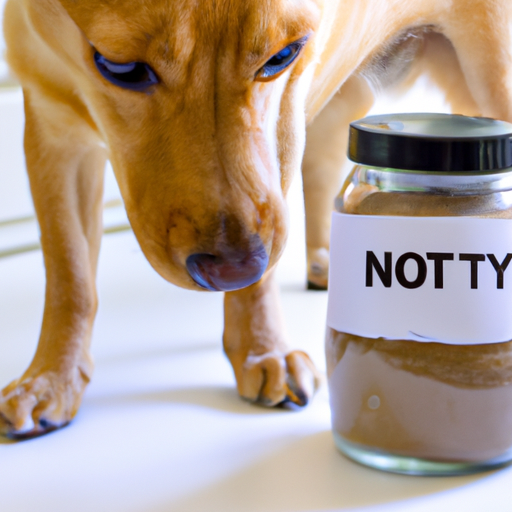The Dangers Hiding in Your Pantry
You may think that a quick spoonful of peanut butter is a tasty treat for your furry friend. After all, it’s natural, right? Sadly, some ingredients commonly found in peanut butter can be harmful to dogs.
Xylitol: The Silent Enemy
Xylitol, a sugar substitute, is the main culprit. It’s used in many products, including some brands of peanut butter. While it’s safe for humans, it can be deadly for dogs.
Here’s a simple table to illustrate the difference:
| Species | Reaction to Xylitol |
|---|---|
| Humans | Safe to consume |
| Dogs | Potentially deadly |
How Xylitol Affects Dogs
When your dog ingests xylitol, it causes a rapid release of insulin. This can lead to hypoglycemia, or low blood sugar. It can also cause liver failure, seizures, and even death.
Here are some common symptoms of xylitol poisoning in dogs:
- Vomiting
- Weakness
- Difficulty walking or standing
- Tremors
- Seizures
Choosing the Right Peanut Butter for Your Dog
So, you’re probably wondering, “how can I make sure my peanut butter is safe for my dog?” It’s all about checking the ingredients. Avoid any peanut butter that lists xylitol or any other artificial sweeteners.
Here’s a handy list of safe ingredients to look for:
- Peanuts
- Salt (in moderation)
- Palm oil
And here are ingredients to avoid:
- Xylitol
- Chocolate
- Caffeine
- Grapes or raisins
FAQs
Q: Can my dog eat peanut butter?
A: Yes, but always check the ingredients first. Avoid any peanut butter that contains xylitol or any other artificial sweeteners.
Q: What should I do if my dog eats peanut butter with xylitol?
A: If you suspect your dog has ingested xylitol, contact your vet immediately.
Q: Are there any safe peanut butter brands for dogs?
A: Yes, many brands offer xylitol-free peanut butter. Always check the label to ensure it’s safe.
Keeping your dog safe is a big responsibility, but it’s also a labor of love. Stay informed about the hidden dangers in common foods, and you’ll be able to provide the best care for your furry friend.



